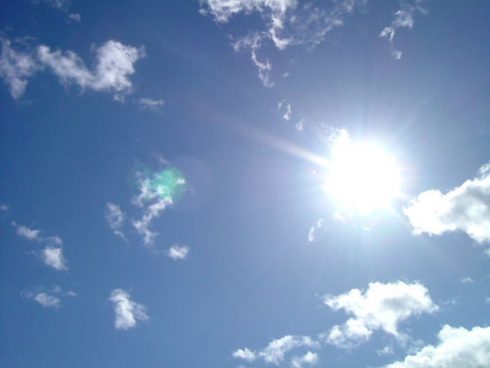
*Or how to see the night sky and save the planet in the process
Could the innocent fairy light be the reason Spain is struggling to keep its CO2 emissions in check? Hardly, argues Mark Roulston. But switching them off could help the Magi follow the Christmas Star
SPAIN is different went the slogan, penned at a time when the country was fast gaining international acceptance despite being under a dictatorial rule.
And thank goodness for that.
The beast that is PC-ism has some countries in Northern Europe firmly within its grip. Take the United Kingdom, for example, where several local authorities have opted not to use Christmas lights this year, so as not to offend minorities.
Now compare this to Spain. Councils have spent millions of euros on many more millions of lightbulbs, which drape trees and lamp-posts in villages, towns and cities throughout the country at this time of year.
Illuminated Santas, Rudolphs, Wise Men and other accepted signs of a Christian Christmas hang suspended over our calles.
Here, I will change tract. This is no tirade against political correctness; I will leave that to others.
Rather this is a call to arms. Brothers, sisters join me in demanding your local town hall switches off the festive lights. Not because it upsets immigrants; the atmosphere and night sky is begging you.
Costing four million euros of council money, Madrid flicked the switch on the nine million light bulbs that make up its Christmas decorations on November 23 this year.
So eager are the Madrileños, they have switched on a full two weeks before the capital’s traditional December 8 start to the festivities.
The same happened in Barcelona, when 55 kilometres of the city’s streets were lit up on the same day.
Down here in Andalucía, the eight capital cities are illuminated under the glare of ten million bulbs (more than two million in Granada alone) at a total cost of four million euros – mainly coming from council pockets.
All this pales into significance when you compare to Valencia. Authorities in the east coast city have shelled out close to ten million euros on its fancy fairy lights, which were switched on earlier than usual on December 2.
Let’s talk figures: over this festive period, local authorities around Spain use 30 million kilowatts per hour in keeping the streets illuminated in Christmas lights.
To put it into perspective, this is the amount of energy a small town of 50,000 consumes in a year – discounting the December and early January period, of course.
Around 10,000 tonnes of carbon dioxide will be emitted into the atmosphere by fairy lights between now and January – roughly half the amount a full Boeing 747 generates when flying between London Gatwick and Málaga.
Okay, when you consider the amount of flights between the two countries every day, this figure does not seem so alarming.
But many Spanish towns and cities are lighting up earlier and keeping the streets illuminated longer than the traditional January 6 turn off.
Although local authorities were quick to point out to the Olive Press that energy-efficient bulbs are in use, 10,000 tonnes is still an awful lot of CO2 – even if Spain produces around one and a half million tonnes of the stuff a year.
The solution? Radically, the answer is simple: do not use decorative lights.
According to electricity supplier Adena, the demand for electricity in Spain rises 4 per cent every year, resulting in an 11 per cent increase in CO2 emissions from the previous annum.
Factor in the increase in demand over Christmas and the New Year, and the extra CO2 output over the years is remarkable.
Okay, okay. For even the greatest of Scrooges, a Christmas without illumination is like an English summer without rain. So, what to do?
Environmental group Ecologistas en Accion has the answer. “Switch the lights on as close to the festive period as possible. Doing it sooner is just a waste of electricity,” spokeswoman Heiiki Willstedt said.
However, shopkeepers differ. They want to extend the period, claiming it generates extra business.
“The lights bring colour to our cities and create dreams. Most of all, they create the ideal atmosphere for shopping,” a spokesman for the Association of Madrid Small Businesses is on record as saying, before adding: “They should even extend the period of Christmas lights until beyond the Reyes (Epiphany).”
There is also a slight irony in the fact brilliant Christmas lights contribute to an ideal shopping environment. They also contribute to light pollution.
“We can see between five and 100 star constellations less today than what we could 20 years ago,” Cipriano Marín, from Starlight, a group campaigning to darken the skies, said.
Another agrees: “Seeing stars in our cities is now impossible,” Paco Collado of green group Ecollum said.
So, shopkeepers answer yourselves this: How can the Three Wise Men deliver gifts to millions of Spanish children on January 5? Without being able to see the Christmas star that directs them to your tills, they will simply get lost.
And the Olive Press’ celestial correspondent Paul Downing agrees: “A thought for Christmas: Our planet is getting brighter, we are putting up ever brighter lights, on our streets and on our houses. Please spare a thought for the sky, and shield them so the light shines downwards and not upwards.”
Next year, the Olive Press will be launching a campaign in a bid to darken our night skies.








